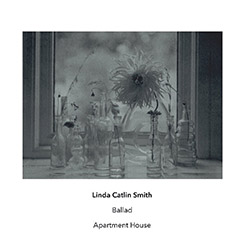
Two works from Canadian composer Linda Catlin Smith and performed by cellist Anton Lukoszevieze and pianist Kerry Yong: "Through the Low Hills" a piece for constrained variations like an object viewed from different angles as it is turned over; and "Ballad" a major work intended for performance that unfolds slowly, allowing for delicate melodic interaction.
Out of Stock
Reordered on 11/6/2024
Quantity in Basket: None
Log In to use our Wish List
Shipping Weight: 3.00 units
Sample The Album:
Linda Catlin Smith-composer
Anton Lukoszevieze-cello
Kerry Yong-piano
Click an artist name above to see in-stock items for that artist.
Label: Another Timbre
Catalog ID: at176
Squidco Product Code: 30469
Format: CD
Condition: New
Released: 20201
Country: UK
Packaging: Cardboard Gatefold
Recorded at Goldsmiths Music Studio, in London, UK, on March 13th, 2021, by Simon Reynell.
Interview: Rose Dodd talks to Linda Catlin Smith
You have said that your intention in your work is to be left to go your own way, 'I compose my identity, through my life and my work.' Could you say a little more about this?
I've always wanted to do things my own way; I was very stubborn as a child, I couldn't wait to be grown up and live on my own, and make my own decisions. I have to figure things out for myself, so that they make sense to me. Sometimes I felt an internal pressure that the world might be expecting me to conform to some standard, as a composer. It was more or less my own internal battle with the sense of how one should be, or how one should think, or how one should make music. I prefer to think there is no 'should'.
You have talked in the past about the freedom you feel you and fellow Canadians enjoy, to explore music unfettered by expectations. How has the scene changed in recent years do you think?
There is a real burgeoning of creativity in Canada. There are so many composers doing incredibly interesting and individual kinds of work. Being "unfettered by expectations", refers to the fact that Canadian work has been largely ignored elsewhere, allowing for a certain freedom from examination. And Canadians are literally far apart from each other - it's a vast country - so there is a kind of 'working in the distance' quality to all of us.
The title "Through the Low Hills" is attributed to Cormac McCarthy's novel The Crossing. What about these words drew you in, and how did the composition process evolve with these in mind?
The composition process had nothing to do with the title - I only came across the phrase after I'd finished composing the piece. The words popped out at me when I was reading the novel, and seemed to resonate with the piece in terms of its short phrases, and its contours.
To me the way material in "Through The Low Hills" is explored and shared between the cello and the piano, the unfolding across the span of the work has an elemental pibroch vibe. This is entirely a personal reading, I am aware. The placing of instruments in relation to each other, their voicings and shifting relationship to each other is elemental in constructing material, dancing around what I feel to be a very loose interpretation of a pibroch as fundament. Was this happenstance, or more intentionally designed?
I don't have any particular relationship with pibroch music, though I do love it. I think of the two instruments as a balancing act between similarity and difference - where do they meet, where are they in their own world...as well as things like which one is foreground, and which background, or do they meet in a middle ground perhaps...?
You write your music by ear, in an intensive and responsive mode of working with the immediacy of material to hand in an uncompromising, yet reflective and intuitive process. At what stage does a piece of work truly begin to take shape for you, to gain its character?
This is such an elusive thing, isn't it? It varies from piece to piece, but I can certainly say a work's character is not evident early on, but usually emerges when I have quite a bit of material, and then it begins to suggest what it might become. I often feel it's like the slowly-developing photograph - first there is nothing, then there is a vague outline or shadow, and eventually more details surface and it starts to clarify into something more defined.
"Through the Low Hills" and "Ballad" make an exquisite pairing as both enrichen and inform the listening experience of each other's interior landscape. In both works, I hear the understated link between cello and piano, though loose and free as being simultaneously as irrefutable as steel. Delicacy underpinned through strength, and commitment to the conversation. Do you see these two works as cut from similar cloth?
One similarity is that both pieces were composed for my brother, Andy Smith, a classical cellist. And while both pieces are instrumentally cut from the same cloth, there is something inherently different about them, in terms of approach, and form. In "Ballad" (45 minutes in duration) I was extending myself into a longer work; I wanted to make a work that could be the entire concert, that could unfold over a longer time. With "Through the Low Hills" (10 minutes), I was working with a very restricted vocabulary in a process of constrained variation, working and re-working just a few elements. I felt like I had an object in my hands and was turning it over and over, looking at it from different angles. With Ballad, it felt more like a journey where I was discovering unfamiliar terrains.
"Ballad" offers a sense of increased and free-er material expression, made possible by increased time span within which to work these things out. The cumulation of this working out in the last section staring at the river is surprisingly formal in quality, arriving brilliantly from elsewhere. Was this a surprise, or did you know it was coming all along?
It was a surprise...like something new appeared just around the bend. In general, I never really know what's coming in my works...I don't plan things, I discover them.
The range of music during your formative education was expansive; Kondo, gagaku, Webern, Feldman and early Cage, so you are unfazed creating new works with unusual instrumental combinations, seeing inherent possibility. Do you know your relationship to each instrument as you set out in the writing of a new work, or does this emerge over time in its creative unfolding?
My relationship to each instrument is always changing; I get new insights every time. Recently I've written a few pieces for string trio - a marvellous instrumental form - so I've been figuring out how I want to hear that. If I'm writing a work for an instrument I don't know very well (the accordion, or the hurdy-gurdy, are recent examples) I spend quite a bit of time with the musician, asking questions, and having them play for me, to get the sound of the instrument in my ears. And I listen to a lot of repertoire. Usually I'm looking for a particular sound, or quality of sound, that speaks to me - that's usually the doorway into the world of the work.

The Squid's Ear!
Artist Biographies
• Show Bio for Linda Catlin Smith "Linda Catlin Smith grew up in New York and lives in Toronto. She studied music in NY, and at the University of Victoria (Canada). Her music has been performed and/or recorded by: Tafelmusik, Other Minds Festival, California Ear Unit, Kitchener-Waterloo, Victoria and Vancouver Symphonies, Arraymusic, Tapestry New Opera, Gryphon Trio, Via Salzburg, Evergreen Club Gamelan, Turning Point Ensemble, Vancouver New Music, and the Del Sol, Penderecki, and Bozzini quartets, among many others; she has been performed by many notable soloists, including Eve Egoyan, Elinor Frey, Philip Thomas, Colin Tilney, Vivienne Spiteri, and Jamie Parker. She has been supported in her work by the Canada Council, Ontario Arts Council, Chalmers Foundation, K.M. Hunter Award, Banff Centre, SOCAN Foundation and Toronto Arts Council; in 2005 her work Garland (for Tafelmusik) was awarded Canada's prestigious Jules Léger Prize. In addition to her work as an independent composer, she was Artistic Director of the Toronto ensemble Arraymusic from 1988 to 1993, and she was a member of the ground-breaking multidisciplinary performance collective, URGE, from 1992-2006. Linda teaches composition privately and at Wilfrid Laurier University, Waterloo, Canada." ^ Hide Bio for Linda Catlin Smith • Show Bio for Anton Lukoszevieze "Cellist Anton Lukoszevieze (born 1965 in the UK) is one of the most diverse performers of his generation and is notable for his performances of avant-garde, experimental and improvised music. Anton has given many performances at numerous international festivals throughout Europe and the USA (Maerzmusik, Donaueschingen, Wien Modern, GAS, Transart, Ultima, etc.etc.). He has also made frequent programmes and broadcasts for BBC Radio 3, Danish Radio, SR2, Sweden, Deutschland Rundfunk, WDR, Germany and ORT, Austria. Deutschlandfunk, Berlin produced a radio portrait of him in September, 2003. Anton has also performed concerti with the City of Birmingham Symphony Orchestra at the 2001 Aldeburgh festival and the Netherlands Radio Symphony Orchestra. He has collaborated with many composers and performers including David Behrman, Alvin Lucier, Amnon Wolman, Pierre Strauch, Rytis Mazulis, Karlheinz Essl, Helmut Oehring, Christopher Fox, Philip Corner, Alvin Curran, Phill Niblock and Laurence Crane, He is unique in the UK through his use of the curved bow (BACH-Bogen), which he is using to develop new repertoire for the cello. From 2005-7 he was New Music Fellow at Kings College, Cambridge and Kettles Yard Gallery. Anton is the subject of four films (FoxFire Eins) by the renowned artist-filmmaker Jayne Parker. A new film Trilogy with compositions by Sylvano Bussotti, George Aperghis and Laurence Crane premieres at The London Film Festival, October 2008. In November will premiere a new hour long work by Christopher Fox for cello and the vocal ensemble Exaudi commissioned by the Huddersfield Contemporary Music Festival and will also present new solo works for cello and live electronics. Anton is also active as an artist, his work has been shown in Holland (Lux Nijmegen), CAC, Vilnius, Duisburg (EarPort), Austria, (Sammlung Essl), Wien Modern, The Slade School of Art, Kettles Yard Gallery, Cambridge Film Festival and Rational Rec. London. His work has been published in Musiktexte, Cologne, design Magazine and the book SoundVisions (Pfau-Verlag, Saarbrucken, 2005). Anton Lukoszevieze is founder and director of the ensemble Apartment House, a member of the radical noise group Zeitkratzer and recently made his contemporary dance debut with the Vincent Dance Company in Broken Chords, Dusseldorf." ^ Hide Bio for Anton Lukoszevieze • Show Bio for Kerry Yong "Kerry is a musician who lives in east London. He trained as a pianist and now also performs on keyboards and live electronics. Kerry has performed at Audiograft, Chisenhale Arts Club, Kämmer Klang, Rational Rec, Borealis Festival, Huddersfield Contemporary Music Festival, ISCM World Music Days, Kings Place, City of London Festival, Music We'd Like To Hear, Nonclassical and in groups Apartment House, ELISION, Plus-Minus Ensemble and Ensemble Offspring. Kerry studied piano with Stephanie McCallum at the University of Sydney (where he also studied composition) and at the Sydney Conservatorium of Music. He completed a doctorate at the Royal College of Music where he studied piano with Andrew Ball and researched Performance practices of music for piano with electroacoustics. He has also dabbled with the other side, playing with bands Apopalyptics, Casiokids and Half-handed Cloud and the Welcome Wagon. Kerry also directs music at Grace Church Hackney (which meets in Hoxton), where they are happy to use ancient chants, traditional hymns and new works with choirs, bands, electronics, objects and the like." ^ Hide Bio for Kerry Yong
11/18/2024
Have a better biography or biography source? Please Contact Us so that we can update this biography.
11/18/2024
Have a better biography or biography source? Please Contact Us so that we can update this biography.
11/18/2024
Have a better biography or biography source? Please Contact Us so that we can update this biography.
Track Listing:
1. Through The Low Hills 9:45
2. Ballad 46:15
Compositional Forms
London & UK Improv & Related Scenes
Ambient & Minimal Music
Duo Recordings
Piano & Keyboards
Stringed Instruments
Staff Picks & Recommended Items
New in Compositional Music
Search for other titles on the label:
Another Timbre.

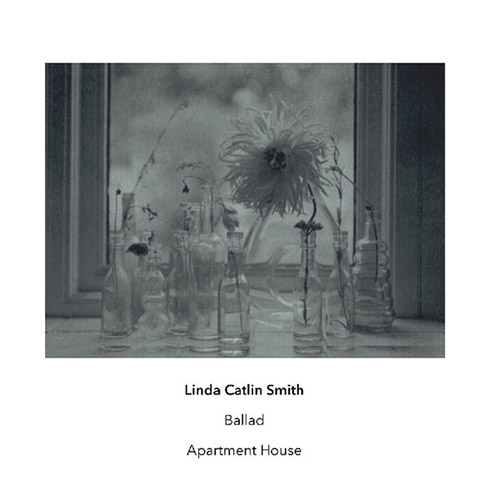
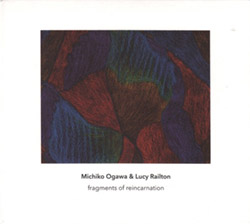
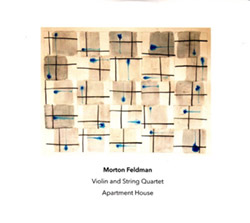
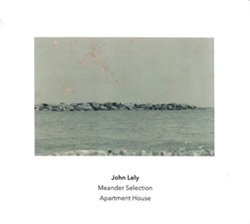
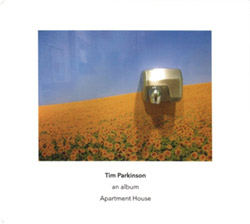
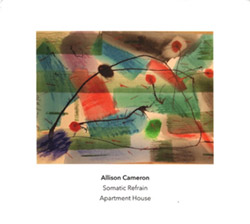
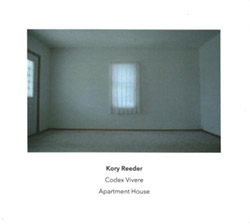



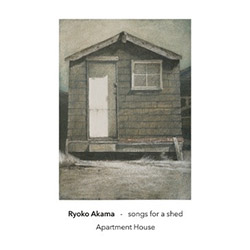

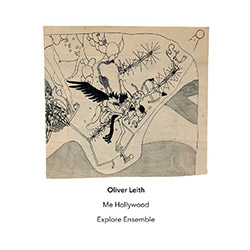
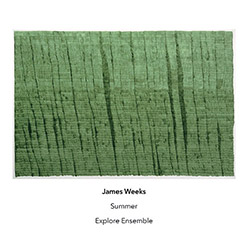
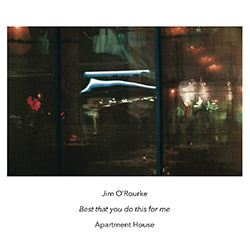


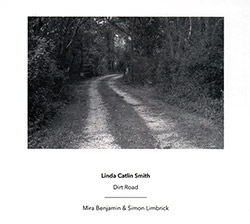


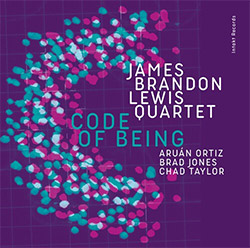
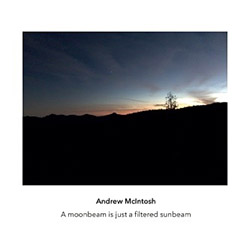
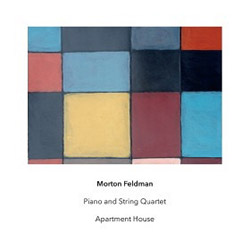
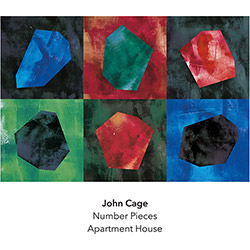
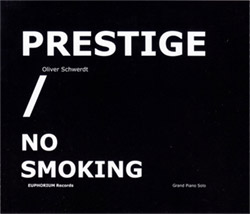

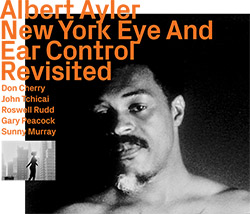














![Barker / Parker / Irabagon: Bakunawa [VINYL]](https://www.teuthida.com/productImages/misc4/35533.jpg)
![Blaser, Samuel / Marc Ducret / Peter Bruun: Dark Was The Night, Cold Was The Ground [VINYL 10-inch]](https://www.teuthida.com/productImages/misc4/35492.jpg)










![Warren, Kenny (Warren / Hoffman / Ellman): Sweet World [VINYL]](https://www.teuthida.com/productImages/misc4/35451.jpg)


![Blake, Ran / Dave Knife Fabris: Live Amsterdam 2006, First Visit [CD + POSTCARDS]](https://www.teuthida.com/productImages/misc4/35275.jpg)
![Sanna, Claudio: Compositori Sardi Contemporanei II [2 CDs]](https://www.teuthida.com/productImages/misc4/35317.jpg)












![Nevai, Nandor: <<The PRICE of FRONTIER>> Book 1: FULK [BOOK + 4 CDs]](https://www.teuthida.com/productImages/misc4/35464.jpg)
![Nevai, Nandor: <<The PRICE of FRONTIER>> Book 2: MARTIAL [BOOK + 4 CDs]](https://www.teuthida.com/productImages/misc4/35465.jpg)
![Nevai, Nandor: <<The PRICE of FRONTIER>> Book 3: JASSOM [BOOK + 4 CDs]](https://www.teuthida.com/productImages/misc4/35466.jpg)
![Nevai, Nandor: <<The PRICE of FRONTIER>> Book 4: HARD-WON [BOOK + 4 CDs]](https://www.teuthida.com/productImages/misc4/35467.jpg)






![DNS: Taking Big Bites Of The Khandas Three Cafes Deep [2 CDs]](https://www.teuthida.com/productImages/misc4/35334.jpg)




![Cleaver, Gerald: The Process [VINYL]](https://www.teuthida.com/productImages/misc4/34966.jpg)




![Alva Noto: HYbr:ID II [VINYL 2 LPs]](https://www.teuthida.com/productImages/misc4/35201.jpg)

![Baron, Derek / Luke Martin: Distinct and Concealed [CASSETTE + DOWNLOAD]](https://www.teuthida.com/productImages/misc4/35079.jpg)

![Lyle, Erica Dawn : Colonial Motels [CASSETTE + DOWNLOAD]](https://www.teuthida.com/productImages/misc4/35080.jpg)







![Alva Noto: HYbr:ID III [VINYL 2 LPs]](https://www.teuthida.com/productImages/misc4/35011.jpg)
![Kubisch, Christina / Trondheim Voices: Stromsanger 2022 For Six Voices And Electromagnetic Waves [VINYL]](https://www.teuthida.com/productImages/misc4/34628.jpg)








![Zurria, Manuel: Fame di Vento [3 CDs]](https://www.teuthida.com/productImages/misc4/35167.jpg)

![Granberg, Magnus / Nattens Inbrott / Skogen: Holde Traume, Kehret Wieder! [2 CDs]](https://www.teuthida.com/productImages/misc4/35038.jpg)
![Frey, Jurg: Outermost Melodie [2 CDs]](https://www.teuthida.com/productImages/misc4/35039.jpg)

![Pavone, Jessica: Reverse Bloom [VINYL]](https://www.teuthida.com/productImages/misc4/34895.jpg)




![Modney (Modney / Wooley / Gentile / Roberts / Pluta / Symthe / ...): Ascending Primes [2 CDs]](https://www.teuthida.com/productImages/misc4/34852.jpg)








![Elephant9 with Terje Rypdal: Catching Fire [VINYL 2 LPs]](https://www.teuthida.com/productImages/misc4/35355.jpg)
![Deerlady (Obomsawin, Mali / Magdalena Abrego): Greatest Hits [VINYL]](https://www.teuthida.com/productImages/misc4/34876.jpg)




![Haino, Keiji: Black Blues [2 CDs]](https://www.teuthida.com/productImages/misc4/35109.jpg)



![Surplus 1980: Illusion of Consistency [CD]](https://www.teuthida.com/productImages/misc4/35069.jpg)
![Staiano, Moe: Away Towards the Light [VINYL + DOWNLOAD]](https://www.teuthida.com/productImages/misc4/35037.jpg)




![Caveira (Gomes / Sousa / Abras / Ferrandini): Ficar Vivo [VINYL]](https://www.teuthida.com/productImages/misc4/34643.jpg)
![Gregg, J. J. / David Van Auken: Lunar Prairie [CD w/ DOWNLOAD]](https://www.teuthida.com/productImages/misc4/34611.jpg)

![Coultrain: Mundus [VINYL]](https://www.teuthida.com/productImages/misc4/32439.jpg)
![Mattin: Songbook #6 [VINYL]](https://www.teuthida.com/productImages/misc4/27317.jpg)
![Punkappella: Wake Up [7-inch VINYL]](https://www.teuthida.com/productImages/misc4/17519.jpg)
![Residents, The: WARNING: UNiNC.: Live And Experimental Recordings 1971-1972 [VINYL 2 LPs]](https://www.teuthida.com/productImages/misc4/31521.jpg)
![Coultrain: Phantasmagoria [VINYL]](https://www.teuthida.com/productImages/misc4/30142.jpg)
![Lennon, Sean Ono: Asterisms [VINYL]](https://www.teuthida.com/productImages/misc4/34517.jpg)

![Rotem Geffen: The Night Is The Night [VINYL]](https://www.teuthida.com/productImages/misc4/34631.jpg)
![Coley, Byron: Dating Tips for Touring Bands [VINYL]](https://www.teuthida.com/productImages/misc4/17906.jpg)

![Lost Kisses: My Life is Sad & Funny [DVD]](https://www.teuthida.com/productImages/misc4/lostKissesDVD.jpg)